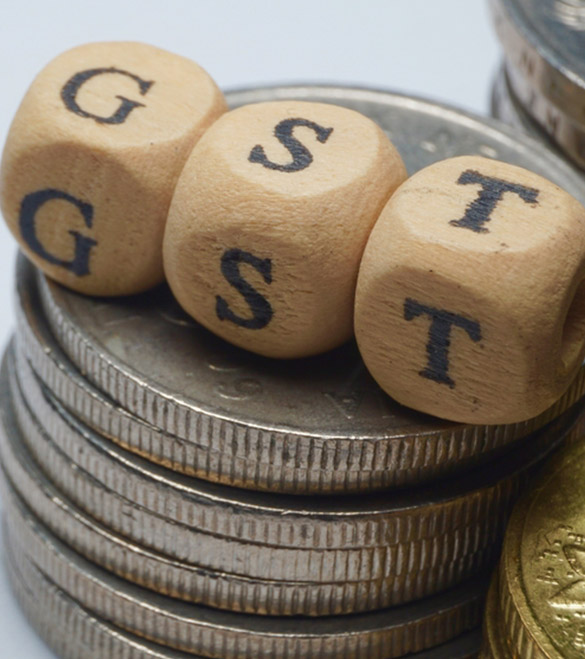GST Compliance Services in India
Registration Under GST
Section 22 and Section 24 of the CGST Act, 2017 specify the categories of persons liable for
registration. Apart from turnover criteria, registration is required in special cases like interstate supply,
input service distributor, reverse charge mechanism, etc.
Documents required for GST Registration
The following documents are required for online application for GST Registration.
- PAN of Applicant (Company, Firm, Individual as the case)
- Incorporation document (Certification of Incorporation, Partnership/ LLP Deed)
- Bank Statement (Not Older Than 3 Months, with Name, Address, and Details)
- Details of all directors, partners, or proprietor as the case (PAN, DIN, Aadhar, Address, Email Address, and Phone Number)
- Details of additional place of Business/ Factory/ Branch, etc.
- Details of Products/ Services to be dealt in
- Board Resolution for GST Application and Letter of Authority in favour of the applicant
- Details of Registration under other Acts like existing VAT, Service Tax, Professional Tax, etc.
Filing of Returns
The mechanism of filing of returns under GST has been transformed from a self-declaration regime to a
confirmation setting. The crux of the system under GST filing is that once self-declaration is made by an
assessee, it is subject to confirmation by the corresponding party.
In case of mismatch between sales and purchases of parties, the mechanism has been provided for
rectification and confirmation by either party. Hence, the herculean task of mismatch of invoices and
incorrect claim of input credit does not arise in GST regime. The result is that there is seamless flow of
transaction benefits and validation periodically.
Filing of returns under GST is divided into Return of Outward Supplies (GSTR 1), return of Inward
Supplies (GSTR 2) and Final Return (GSTR 3). The due date chart for returns is
| Applicability |
Type |
Return |
Due Date |
| Every registered person (other than ISD, non-resident taxable person) |
Outward Supplies |
GSTR 1 |
On or before 10th of next month |
| Inward Supplies |
GSTR 2 |
After 10th but on or before 15th of next month |
| Final Return |
GSTR 3 |
On or before 20th of next month |
| Supplier under Composition Scheme |
Quarterly Return |
GSTR 4 |
Within 18 days from end of each quarter |
| Registered non-resident taxable person |
Inward and outward supply |
|
On or before 20th of next month |
| Input service distributor |
Details of tax invoices |
|
On or before 13th of next month |
| All registered persons |
Annual Return |
|
31st December of following financial year |
GST Rate list for Goods with HSN Code
All goods under GST regime are assigned with HSN code and classification. Click here to refer to
detailed rate list for
- GST Rate List for Goods at NIL Rate
- GST Rate List for Goods at 0.25% Rate
- GST Rate List for Goods at 3% Rate
- GST Rate List for Goods at 5% Rate
- GST Rate List for Goods at 12% Rate
- GST Rate List for Goods at 18% Rate
- GST Rate List for Goods at 28% Rate
GST Rate list for Services
All goods under GST regime are assigned with HSN code and classification. Click here to refer to
detailed rate list for
- GST Rate List for Services at NIL Rate
- GST Rate List for Services at 5% Rate
- GST Rate List for Services at 12% Rate
- GST Rate List for Services at 18% Rate
- GST Rate List for Goods at 28% Rate
Tax experts at V. Purohit & Associates are constantly updated about the various developments w.r.t. around
GST and its implication for your business. We have the technical knowhow, technical capability, and practical
understanding that allows us to have a consultative and comprehensive approach.

